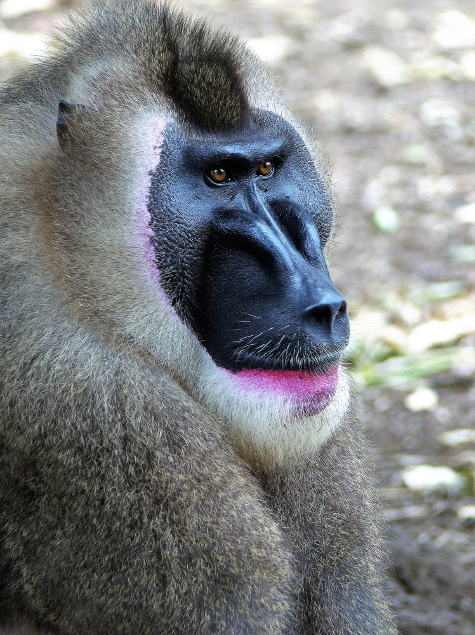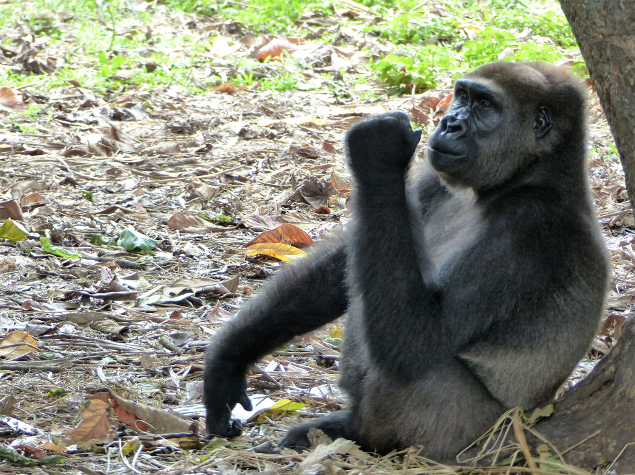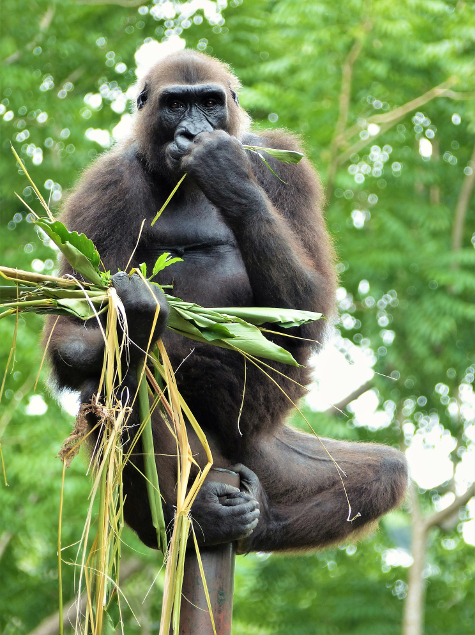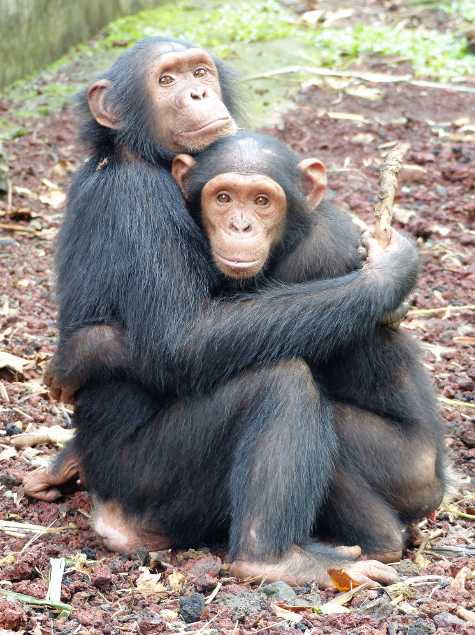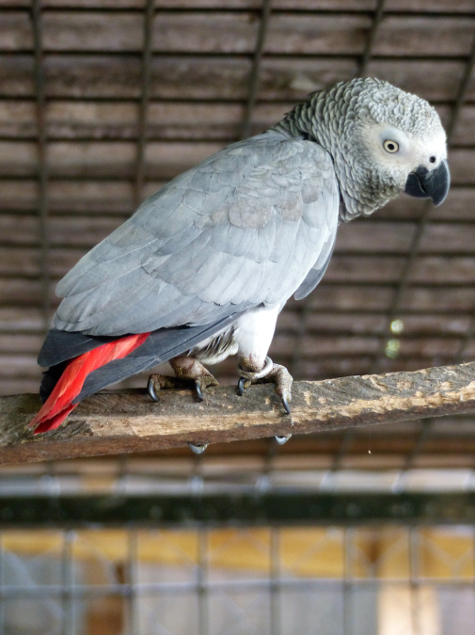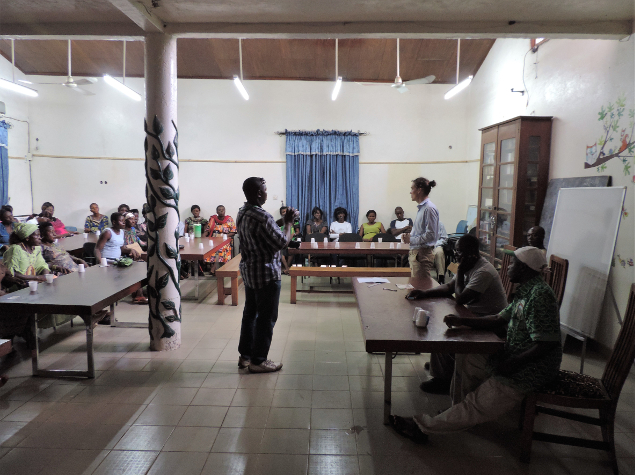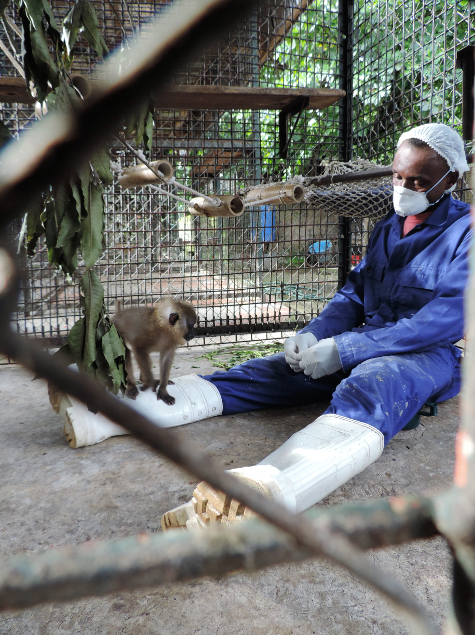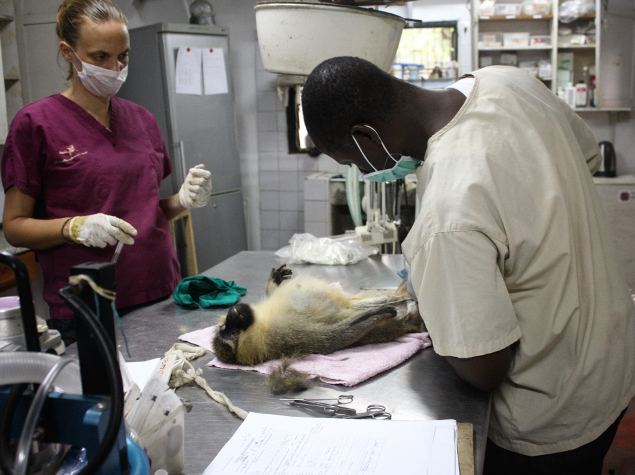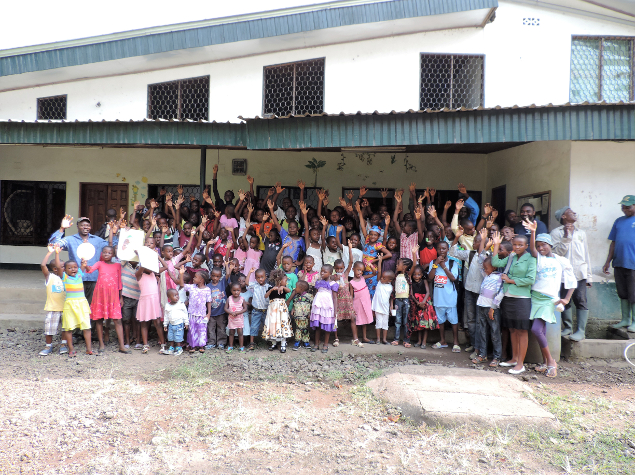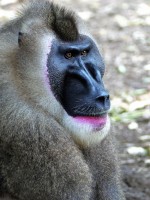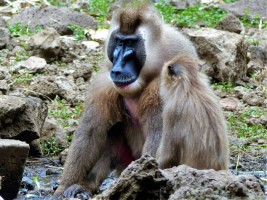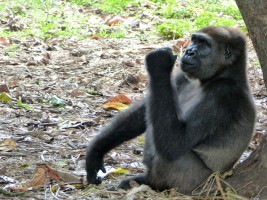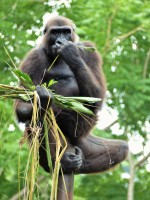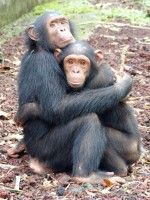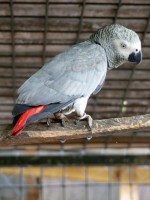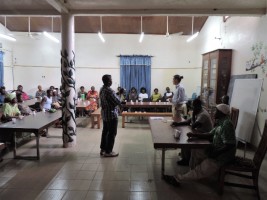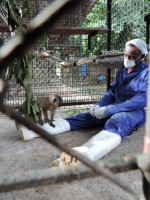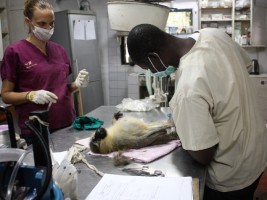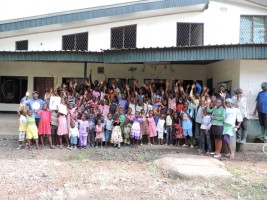Protection and rehabilitation of animals rescued from networks trafficking in endangered animal species
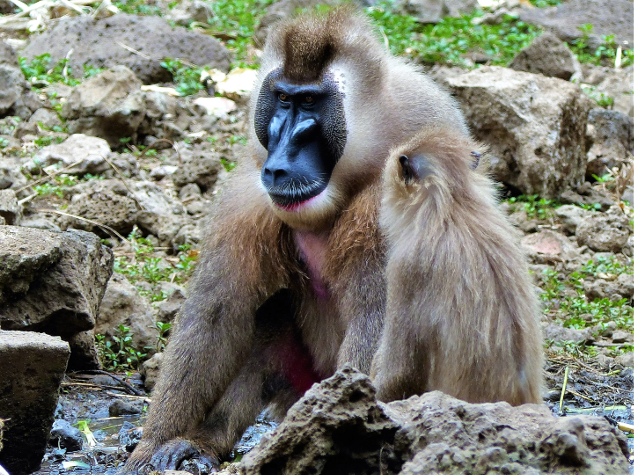
Set up in Limbe Zoo in 1993, the Limbe Wildlife Center (LWC) protects and rehabilitates wild animals rescued from illicit trafficking networks in Cameroon. Currently home to over 200 primates (including gorillas, chimpanzees and drills), the LWC also cares every year for 100 to 150 animals from many other endangered species protected by Cameroon’s wildlife legislation, such as African grey parrots and dwarf crocodiles.
By the time they reach the LWC, some of the animals are in very poor health, which makes veterinary care a real challenge. Other animals have developed stereotyped behavior that reflects their suffering and the acute stress to which they have been subjected. Stringent social and behavioral rehabilitation procedures must therefore be put in place during the first hours/days of their arrival in order to rapidly reduce the effects of the stress and enhance their well-being.
The goal of this project is to ensure the survival of the animals rescued and to rehabilitate them so that they can once again survive in the wild.
To this end, the NGO will help the competent authorities break up wildlife trafficking networks not only by supplying information but also by providing the infrastructure, equipment and adequate care for the wild animals rescued. The centre will also provide medical monitoring and support for each animal, establishing their microbiological, parasitological and virological status to assess the feasibility of future release.
Another project component focuses on children’s involvement in protecting their environmental heritage, encouraging them to become a driving force for conservation. An environmental education and conservation awareness program will accordingly be set up by means of cultural, artistic and practical activities.
The project will build teachers’ technical and scientific capacity and also provide training for the permanent staff in rehabilitation procedures for wild primates. While generally well-trained and rigorous, the LWC staff lack knowledge and expertise when it comes to social and behavioral rehabilitation and an understanding of the ecology of the species. Capacity building is therefore essential in these areas, which tend to be poorly understood.
Finally, partnership agreements will be established with the local communities so as to create alternative income-generating activities and reduce the pressure caused by poaching.
Final report summary:
Various activities have been implemented by the LWC team over the funded period:
- 33 individuals have been rescued and 10 have been released.
- Cages have been built or reinforced and some purchases done. A semi-liberty zone will soon be opened.
- Quarantine, care, rehabilitation, nutrition and behavioral monitoring continued.
- 337 children take part every Saturday in a Nature Club and beyond 1,000 took part in an environmental education program. An outdoor school has also been organized. An educational farm has been set up.
- 4 ecoguides and 4 junior educators have been trained.
- Sales of plant, alternative activities to hunting, have been maintained.
A justice unit, which will help the enforcement of the wildlife law will be created.
This project is partly funded thanks to the sponsorship of a generous donor. If you also wish to support initiatives towards threatened animal species conservation, click here.

